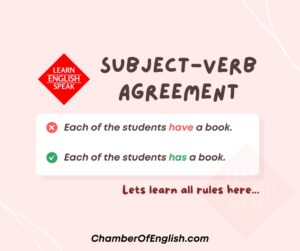Introduction
Transitive verbs are like the bridges in a sentence, connecting the action to the recipient of that action. If you can ask “What?” or “Whom?” after the verb and get a meaningful answer, you’re likely dealing with a transitive verb. Let’s break down transitive verbs in a way that even those with basic English knowledge can understand.
What are Transitive Verbs?
Transitive verbs are action words that need a direct object to complete their meaning. This direct object is the “receiver” of the action. These verbs help us understand what or whom the action is directed towards.
Examples of Transitive Verbs
- She reads a book.
- The action: Reads
- The direct object: A book
- You can ask: “She reads what?” Answer: a book
- He paints the wall.
- The action: Paints
- The direct object: The wall
- You can ask: “He paints what?” Answer: the wall
- They ate pizza for dinner.
- The action: Ate
- The direct object: Pizza
- You can ask: “They ate what?” Answer: pizza
- I bought a new phone.
- The action: Bought
- The direct object: A new phone
- You can ask: “I bought what?” Answer: a new phone
- She watches movies on weekends.
- The action: Watches
- The direct object: Movies
- You can ask: “She watches what?” Answer: movies
How to Identify Transitive Verbs
- Direct Object: Look for the word that answers the question “What?” or “Whom?” after the verb.
- No “to” or “for” Needed: Transitive verbs don’t need prepositions like “to” or “for” to connect the action to the direct object.
Remember, transitive verbs are the ones that hand off their action to someone or something. They bring life to sentences by showing us where the action is headed. By spotting these verbs and their direct objects, you’re well on your way to understanding the essential role they play in creating meaningful sentences.
Keep practicing, and you’ll soon become a pro at identifying transitive verbs and their buddies, the direct objects!
Stay tuned for more engaging lessons on grammar and follow us on our Facebook page: Learn English – Speak English




